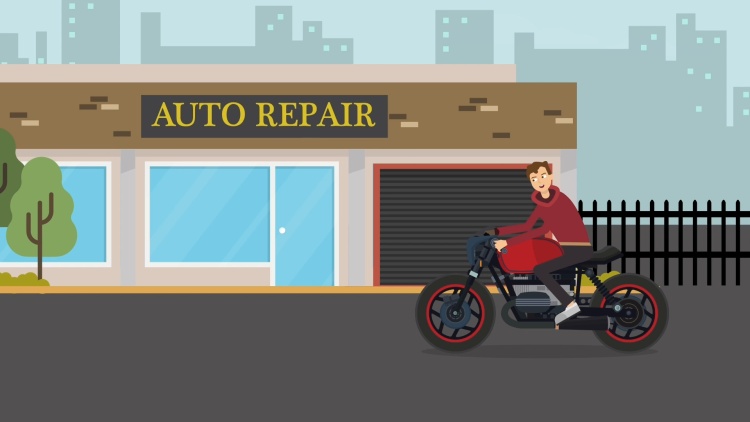People v. Russell
California Court of Appeal, Sixth District
144 Cal. App. 4th 1415 (2006)

- Written by Carolyn Strutton, JD
Facts
Doug Foster brought his old and damaged motorcycle to a repair shop while the shop was closed. He left the motorcycle outside of the shop next to a fenced area that contained the shop’s garbage bins and did not lock it. The motorcycle was tarnished and rusty, had tape over one of the lights, cobwebs and leaves in the front wheel, and the registration tags had expired months before. The following day, Philip Russell (defendant), a homeless man who lived in a tent nearby the shop, noticed the motorcycle and believed it had been abandoned in the shop’s trash. He took it from the area and jumpstarted it, and then later brought it back to the shop for repairs. Russell was stopped by a police officer for a traffic violation while driving the motorcycle, and explained to the officer how he had found it. The officer gave him Foster’s name and address as the registered owner and instructed Russell to get it registered in his own name. Russell went to Foster’s address, hoping that Foster would sign over the motorcycle to him, but Foster had moved. Later that month, other police officers noticed the motorcycle near Russell’s tent. After running the license plate number, the officers discovered that Foster had reported it stolen. Russell cooperated with the officers but was eventually charged with possession of stolen property and convicted. Russell appealed, alleging that the jury should have been instructed that a good faith believe that the motorcycle had been abandoned would have negated the knowledge element of the crime.
Rule of Law
Issue
Holding and Reasoning (McAdams, J.)
What to do next…
Here's why 907,000 law students have relied on our case briefs:
- Written by law professors and practitioners, not other law students. 47,100 briefs, keyed to 996 casebooks. Top-notch customer support.
- The right amount of information, includes the facts, issues, rule of law, holding and reasoning, and any concurrences and dissents.
- Access in your classes, works on your mobile and tablet. Massive library of related video lessons and high quality multiple-choice questions.
- Easy to use, uniform format for every case brief. Written in plain English, not in legalese. Our briefs summarize and simplify; they don’t just repeat the court’s language.







